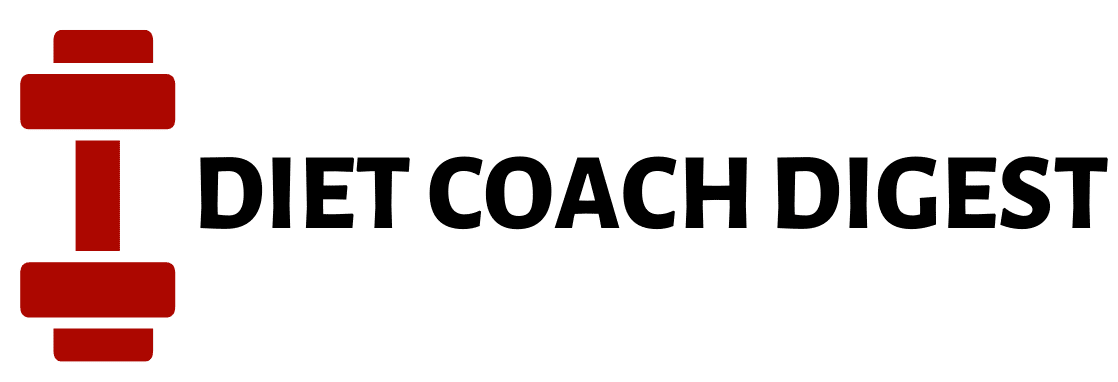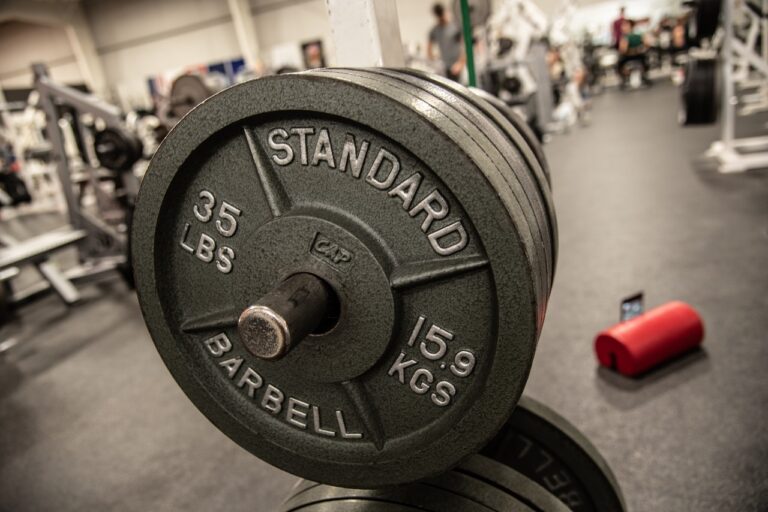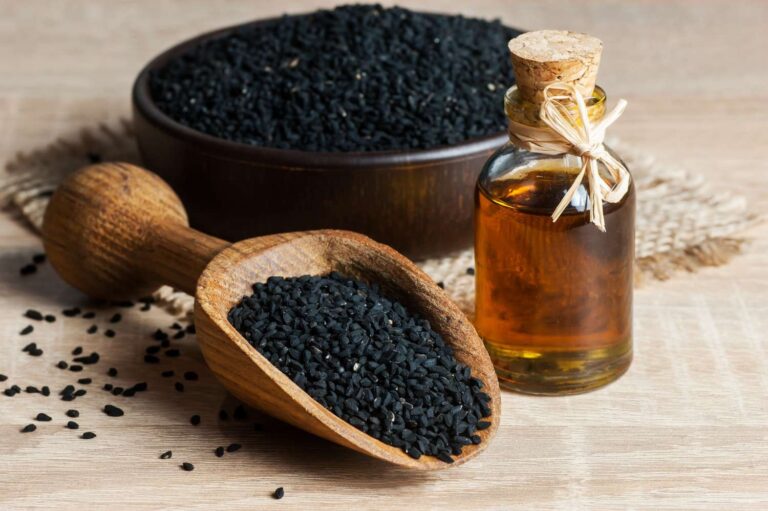Nutrition Secrets: How Critical Is Diet for Muscle Building?

- Should You Train To Muscle Failure Every Set? What You Need To Know - March 4, 2025
- Nutrition in a Hurry: Top Post-Workout Snacks for Active People - February 20, 2025
- 15 Healthy Meal Prep Recipes: Your Weight Loss Made Easy - February 18, 2025
Your diet accounts for up to 80% of your muscle-building success, making proper nutrition critical. You must focus on consuming adequate protein (20-30g per meal across 4-6 meals daily), strategic carbohydrates (0.5-0.7g per pound post-workout), and healthy fats for hormonal balance. Timing these nutrients matters greatly – eating the right combinations before and after training can enhance muscle protein synthesis and recovery. Spreading meals 3-4 hours apart while maintaining consistent feeding intervals creates an ideal anabolic environment. Understanding these foundational nutrition principles will reveal your muscle-building potential.
Key Takeaways
- Consuming 20-30g of protein every 3-4 hours maintains optimal amino acid levels for continuous muscle protein synthesis throughout the day.
- A caloric surplus combined with proper macronutrient ratios is essential for muscle growth and recovery after training sessions.
- Post-workout nutrition timing within 30-60 minutes maximizes muscle recovery through fast-digesting proteins and simple carbohydrates.
- Healthy fats from sources like avocados and fish support hormone production and reduce inflammation during muscle building.
- Whole food sources provide superior micronutrient profiles compared to processed alternatives, enhancing overall muscle growth and recovery.
The Protein Building Blocks

Three essential amino acids form the foundation of muscle protein synthesis: leucine, isoleucine, and valine. These branched-chain amino acids work synergistically to trigger anabolic responses in your skeletal muscle tissue. You’ll find them abundantly in high-quality protein sources like eggs, whey, and lean meats. Studies from the International Society of Sports Nutrition show that maintaining a positive protein balance throughout the day is crucial, as your body can’t store amino acids as it does with carbohydrates and fats.
Your body can’t store amino acids like it stores carbohydrates and fats, so you must consume protein regularly. Research indicates that spreading your intake across 4-6 meals, with 20-30 grams of protein per serving, maximizes muscle protein synthesis. Focus on complete protein sources that provide all nine essential amino acids to support your training adaptations and recovery processes. Additionally, pairing protein with carbohydrates for enhanced recovery can further improve your muscle repair and growth outcomes.
Carbohydrates and Muscle Recovery

While protein serves as the primary building block for muscle tissue, carbohydrates play an essential role in post-exercise recovery and muscle glycogen replenishment. You’ll need to optimize your carb intake strategically through methods like carb cycling to maximize your training adaptations and recovery potential.
Research indicates that consuming carbohydrates within the post-exercise window enhances muscle glycogen synthesis and reduces the breakdown of muscle tissue. Your body’s ability to replenish glycogen stores peaks during this critical period.
- Consume 0.5-0.7g of carbs per pound of body weight within 30 minutes post-workout
- Implement carb cycling by increasing intake on training days and reducing on rest days
- Prioritize complex carbohydrates for sustained energy and improved glycogen storage capacity
Incorporating carb cycling patterns into your nutrition plan can further enhance the benefits of your recovery strategy.
These strategic approaches to carbohydrate consumption will support your muscle-building goals while optimizing recovery between training sessions.
Essential Role of Healthy Fats
Beyond carbohydrates’ role in muscle recovery, dietary fats serve as fundamental components for muscle growth and hormonal regulation. You’ll need to consume adequate healthy fat sources to maintain ideal testosterone levels and support cellular membrane integrity. Essential fatty acids, particularly omega-3s, help reduce exercise-induced inflammation and enhance muscle protein synthesis. Omega-3 fish oil may also enhance exercise performance, leading to improved muscle-building outcomes.
Your body’s fat digestion process directly influences the absorption of fat-soluble vitamins (A, D, E, and K), which play significant roles in muscle function and recovery. To maximize these benefits, incorporate sources like avocados, nuts, olive oil, and fatty fish into your daily nutrition plan. These fats also help stabilize blood sugar levels, providing sustained energy during intense training sessions and supporting your overall muscle-building goals.
Timing Your Meals for Growth

To maximize muscle growth potential, strategic meal timing plays an essential role alongside nutrient composition. Research indicates that ideal meal frequency ranges from 4-6 meals daily, spaced 3-4 hours apart, to maintain a consistent amino acid pool for protein synthesis. Nutrient timing becomes particularly important during your pre and post-workout windows when your muscles are most receptive to nutrients.
- Consume a balanced meal containing protein and carbohydrates 2-3 hours before training to fuel performance and prevent muscle breakdown.
- Ingest fast-digesting protein and carbs within 30 minutes post-workout to initiate recovery and replenish glycogen stores.
- Space protein intake evenly throughout the day, aiming for 20-30g per meal to enhance muscle protein synthesis.
Additionally, proper pre-workout nutrition helps provide the necessary fuel for optimal performance and reduces the risk of injury. Adherence to these timing principles enhances your anabolic response and supports sustained muscle development.
Supplements Worth Considering
Although a proper diet should form the foundation of your muscle-building strategy, certain supplements can effectively enhance your results when used appropriately. Research consistently demonstrates that creatine benefits include increased strength, enhanced muscle protein synthesis, and improved recovery between sets. You’ll find it’s particularly effective when combined with resistance training, leading to greater muscle mass gains compared to training alone. Additionally, creatine enhances ATP production, which is crucial for high-intensity exercise performance.
Branched-chain amino acids (BCAAs) play an essential role in muscle protein synthesis and reducing exercise-induced muscle damage. They’re especially valuable when training in a fasted state or during caloric restriction. While these supplements won’t compensate for poor nutrition, they can optimize your muscle-building potential when integrated into a well-structured diet and training program.
Hydration and Muscle Development
When muscles contract during intense exercise, they generate considerable heat and require adequate hydration for ideal performance and growth. Your body’s fluid balance directly impacts protein synthesis, nutrient transport, and cellular volumization – all essential factors in muscle development. Research indicates that even mild dehydration can decrease strength by up to 10% and markedly impair recovery.
- Maintain hydration by consuming 0.5-1 ounce of water per pound of body weight daily
- Monitor urine color (pale yellow indicates ideal hydration)
- Time fluid intake 2-3 hours before training to prevent performance decline
Understanding hydration’s importance extends beyond drinking when thirsty. You’ll need to establish systematic hydration protocols, particularly during high-volume training phases. Pre-emptive hydration strategies help maintain cellular hydration status, which influences both acute performance and long-term muscle adaptations.
Pre-Workout Nutrition Strategies
Since nutrient timing greatly influences exercise performance and muscle protein synthesis, pre-workout nutrition demands strategic planning. You’ll need to consume specific pre-workout snacks 2-3 hours before training to optimize your energy sources and minimize gastrointestinal distress.
| Nutrient | Amount | Timing | Purpose |
|---|---|---|---|
| Carbs | 30-40g | 2-3 hrs pre | Glycogen loading |
| Protein | 20-30g | 2 hrs pre | Amino acid pool |
| Fats | 5-10g | 3 hrs pre | Sustained energy |
| Water | 16-20oz | 1 hr pre | Hydration status |
You’ll want to focus on easily digestible carbohydrates like oats or rice, combined with lean protein sources. This combination will help maintain blood glucose levels and provide sustained energy throughout your workout while supporting muscle protein synthesis.
Post-Exercise Meal Planning

Because muscle protein synthesis peaks within the first hour after resistance training, your post-exercise nutrition window presents a critical opportunity for recovery and growth. You’ll need to strategically plan your post-workout snacks to maximize this anabolic response. Research indicates that consuming a combination of fast-digesting protein and carbohydrates can greatly enhance muscle glycogen replenishment and protein synthesis rates.
- Prepare protein-rich meal prep options (25-30g) such as chicken breast, whey isolate, or egg whites
- Include rapid-digesting carbohydrates (0.5g/kg body weight) like white rice or fruit
- Time your consumption within 60 minutes post-exercise for ideal nutrient uptake
To maintain consistency, you’ll benefit from preparing multiple post-workout meals in advance, storing them in portable containers, and keeping them readily accessible for immediate post-training consumption.
Common Diet Pitfalls
Despite carefully planned nutrition strategies, many individuals fall prey to common dietary mistakes that can derail muscle-building progress. You’ll often misjudge your caloric surplus, either overshooting and gaining excessive fat, or falling short and limiting muscle growth. Poor food quality choices can further compromise results, as processed foods lack the micronutrients necessary for ideal muscle synthesis and recovery.
You might also fixate on protein intake while neglecting essential carbohydrates and fats, creating hormonal imbalances that impede muscle development. Another critical error is inconsistent meal timing, particularly around workouts. When you skip meals or fail to maintain regular feeding intervals, you’re disrupting the anabolic environment needed for muscle growth. These mistakes, while common, can be avoided through careful tracking and adherence to evidence-based nutrition principles.
Frequently Asked Questions
Can I Build Muscle While Following a Vegetarian or Vegan Diet?
You can build muscle on vegetarian or vegan diets by consuming adequate plant-based proteins like legumes, quinoa, and soy. Proper protein timing and variety support ideal muscle recovery and growth.
How Does Alcohol Consumption Affect Muscle Growth and Recovery?
Like Achilles’ heel, alcohol is your nemesis: it disrupts protein synthesis, slows alcohol metabolism, and extends recovery time. You’ll compromise muscle growth and strength gains while drinking regularly.
Should I Eat Differently on Rest Days Versus Training Days?
You’ll need higher calories and carbs on training days for performance and recovery. On rest days, slightly reduce calories and carbs while maintaining protein levels for muscle maintenance.
Does Eating Late at Night Negatively Impact Muscle Growth?
Like a 24-hour diner, your body doesn’t close for business at night. Research shows nutrient timing isn’t critical, and your metabolic rate continues processing nutrients effectively regardless of when you eat.
Can Certain Foods Naturally Boost Testosterone Levels for Better Muscle Gains?
You’ll find natural testosterone boosters in food sources like eggs, fatty fish, beef, and zinc-rich oysters. Vitamin D-rich foods and cruciferous vegetables can also support ideal hormone production for muscle growth.
Final Thoughts
Your nutrition strategy acts as the foundation for muscle development, as solid as bedrock beneath a skyscraper. By maintaining ideal protein intake, timing your nutrients effectively, and avoiding common pitfalls, you’ll maximize your training results. The evidence clearly shows that proper nutrition accounts for approximately 70% of your muscle-building success. Remember, you can’t out-train a poor diet, so prioritize these nutritional principles for ideal results.
Table of Contents






